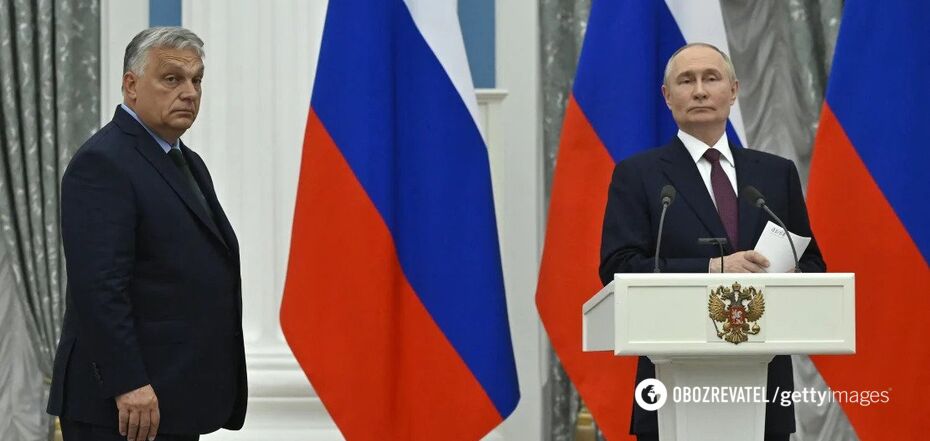War in Ukraine
ISW explains how Orban's calls for peace talks threaten Ukraine
Hungarian Prime Minister Viktor Orban continues to position himself as a potential mediator in ending the war in Ukraine. He seeks to shift the West's attention to possible peace talks as part of his comprehensive efforts to undermine European support for the Ukrainian state.
At the same time, even Russian dictator Putin has refused such "help" from his "friend." This is stated in the report of the Institute for the Study of War (ISW).
On July 5, the Hungarian politician published an article in Newsweek in which he accused NATO of "preferring conflict to peace" and said that the Alliance was created to maintain peace. Orban's article came after his visits to Kyiv on July 2 and Moscow on July 5 to persuade Russia and Ukraine to start negotiations. Experts believe that these actions are part of his efforts to shift Europe's attention to discussions about peace talks and military support for Ukraine.
Orban has consistently opposed and undermined the European Union's efforts to assist Kyiv, and shifting Europe's focus away from this topic supports this broader goal now that Hungary has taken over the EU Council presidency. In particular, Bulgarian Prime Minister Dimitar Glavchev recently suggested that his country could "mediate peaceful" talks between Ukraine and Russia, and emphasized that the dialogue must comply with the UN Charter and international law. Turkish Foreign Minister Hakan Fidan also called on Ukraine to expand and accelerate the peace process to prevent "deepening polarization" and "give priority to diplomacy."
"Orban's and others' calls for negotiations, as well as the peace formula for Ukraine, are separate efforts with different goals. Russian President Putin has demonstrated that he is not interested in any negotiations except for Ukraine's surrender. He rejected Russia's participation in possible ceasefire negotiations, instead demanding Ukraine's surrender through "demilitarization" and the surrender of significant territory that is not currently occupied," ISW noted.
They added that the Kremlin leader has always tried to portray Russia as one that is ready for negotiations but has falsely portrayed Ukrainian officials as unwilling or unable to engage in dialogue. Ukraine has recently concluded the first of many summits with its partners to set the stage for possible future negotiations that will lead to a lasting peace on terms acceptable to Kyiv and its supporters, as well as dozens of partner states and international organizations. This includes Hungary, Turkey, and Bulgaria, which also signed a Joint Peace Communiqué on June 16, reaffirming their support for Ukraine's sovereignty and territorial integrity.
"Ukraine's ability to continue its own peace process depends on its ability to liberate operationally important territory. Ukraine cannot launch successful counteroffensive efforts to achieve this goal without military support from the West in the short and medium term," the analysts stated.
Only verified information is available on our Telegram channel OBOZ.UA and Viber. Do not fall for fakes!



























